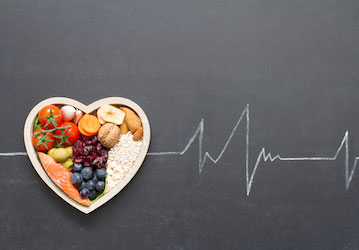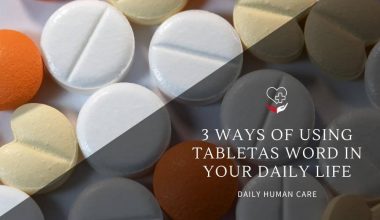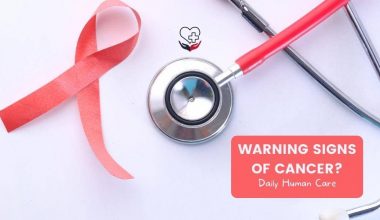Table of Contents
Strategies for Holistic Heart Health Care
High blood pressure and diabetes are serious conditions, and many people rely on medicine to help them manage them. However, it’s possible to significantly reduce high blood pressure and diabetes by making holistic lifestyle changes.
According to Johns Hopkins Medicine, an individual with both high blood pressure and diabetes has a four times higher chance of developing heart disease than people without either condition.
So, we’ll share holistic strategies for managing your diabetes and high blood pressure. In turn, it’ll help prevent life-threatening side effects from diabetes and high blood pressure.
Ideal Blood Pressure and Blood Sugar Ranges
Before we discuss strategies for holistically reducing high blood pressure and diabetes numbers, below are the ideal ranges you should stay within.
- Blood pressure: Maximum 120 systolic and 80 diastolic
- Blood sugar: Less than 100 mg/dL after fasting for 8 hours; less than 140 mg/dL two hours after eating
Here is the best treatment for high blood pressure at home and home testing for diabetes.
9 Strategies for Holistic Heart Health Care
Some of the best holistic ways to improve your heart health are common sense. But since common sense doesn’t always equate to common practice, we’ll share the “why” behind the reasoning for implementing these strategies.

1. Exercise Regularly
One of the best ways to prevent irregular heart rhythms and get your diabetes or high blood pressure under control is by increasing your heart rate through exercise. The current guidelines include doing a minimum of 30 minutes of moderate to high-intensity activity five days per week.
The heart is a muscle. So, exercising strengthens the heart, making it more effective at pulling oxygen out of your bloodstream with less work.
By incorporating exercise into your routine, you’ll notice that your resting heart rate will drop—which is what you want—and that your blood pressure will lower. Furthermore, since exercise helps with weight loss and maintenance, it’s effective for diabetes management.
You’re welcome to choose the exercise of your preference, but you should focus on aerobic cardio exercise for holistically improving your heart’s health.
2. Get Enough Sleep
Blood pressure naturally drops when you sleep. So, if you’re not getting the recommended minimum of seven hours of rest each night, your blood pressure will remain higher for longer. The results of this can be deadly, as it can spur heart disease and stroke.
Evidence also suggests that getting enough sleep can help people with diabetes control their blood sugar. Sleep can also prevent weight gain, which is a contributing factor to both diabetes and high blood pressure.
Sleep apnea and insomnia are situations that prevent people from getting enough sleep and can damage the heart.
Some of the best ways to improve the quality of your sleep are to stick with the same sleeping schedule seven days per week, use a blue light filter if you use electronics in the evening, and sleep in a cool, dark environment.
3. Lose Weight
We’ve already touched on weight loss, but being overweight can have such a negative impact on heart health, diabetes, and high blood pressure that it deserves its own section.
Approximately two-thirds of Americans are overweight or obese. If you fall into this category, you’ll be able to significantly reduce your chances of developing heart disease by losing just five to ten percent of your body weight.
Excess weight puts more strain on your heart since your body requires more nutrients, and your heart must work harder to pump those nutrients throughout your body. In turn, your artery walls feel more pressure, raising your blood pressure.
Furthermore, being overweight prevents your body from processing sugar efficiently. The result is that diabetes is more difficult to manage. Eating whole foods and exercising often are some of the most holistic ways to reduce body weight.
Also, read meal replacement shakes for diabetes.
4. Reduce Your Stress
Developing strategies to lower stress is another excellent way to care for your heart. But if you’re prone to stress, hearing that you need to reduce it might have the opposite effect and raise your stress levels.
Some of the best ways to lower stress include:
- Eating healthy
- Reducing caffeine intake
- Limiting time on social media
- Spending time with friends
- Increasing your physical activity
Learning to say “no” when someone asks you for a favor you don’t have time for is another challenging but vital step in reducing stress.
People with BLS training comment on the number of cardiovascular life support patients they’ve treated who could have had preventable conditions had they reduced their stress and followed the other holistic strategies we’re covering here.
5. Limit Sodium Intake
It’s a widely accepted theory that individuals with high salt intake have an increased risk of developing atrial fibrillation, a dangerous change in one’s heart rhythm.
The reason for this is that sodium causes your body to retain extra water. Since excess water in the body increases strain on the heart and blood vessels, it can cause your blood pressure to rise.
In contrast, a high sodium intake won’t affect your blood glucose levels. So, it isn’t a big concern for people with diabetes, although limiting your sodium intake is always wise to prevent high blood pressure.
You shouldn’t consume more than 2,300 milligrams of sodium per day. But the reality is that while humans depend on sodium to live, you can sustain yourself on much less sodium than the recommended 2,300 milligrams.
6. Increase Your Nutrient Consumption
Assessing your food intake is one of the best ways to holistically care for your heart and improve blood pressure and diabetes. Food is medicine, as the saying goes.
So, if you’re struggling with high blood pressure, the nutrients and foods below may help you lower it without taking medicine:
- Potassium
- Calcium
- Magnesium
- Leafy greens
In contrast, incorporating the following nutrients and foods into your diet is excellent for controlling diabetes:
- Vitamin D
- Magnesium
- Probiotics
- Aloe vera
You can get many of the vitamins and minerals listed here through a daily multivitamin.
However, we encourage you also to get these nutrients through whole foods, as they can help you manage your weight if weight is a contributing factor to your diabetes or high blood pressure.
7. Avoid Alcohol and Tobacco
Drinking alcohol can cause massive spikes and drops in blood sugar, a dangerous situation for people with diabetes. Low blood sugar is a particularly big concern among people who are currently taking medicine for diabetes, as drinking can cause hypoglycemia.
Alcohol can also have devastating impacts on people with high blood pressure. That’s because drinking three or more drinks at a time causes blood pressure to spike.
While this is a temporary situation, binge drinkers can suffer from long-term drinking-related high blood pressure.
Smoking is a known contributor to heart disease, and smokers with high blood pressure or diabetes have an extra high risk of developing it. Unfortunately, there’s no meeting in the middle regarding smoking; take action to stop this habit as soon as possible.
By doing so, you can expect a noticeable drop in your blood sugar and blood pressure levels.
8. Reduce Processed Foods
It’s no secret that processed foods are bad for us. They often contain lots of sodium, sugar, and refined carbohydrates, increasing our heart rhythms to potentially dangerous levels, particularly in people with diabetes or high blood pressure.
According to data from 2017, the average American consumed over 57% of their daily calories from ultra-processed foods. That’s a troubling statistic, compounded by the fact that the category of unprocessed and minimally processed foods was at only 30.2%.
Fatty processed foods are leading contributors to heart disease, as they’re a high source of cholesterol and saturated fat. Meanwhile, excessive sugar in processed foods contributes to insulin resistance, making it challenging for individuals with diabetes to control their blood sugar levels.
The good news is that reducing processed foods from your diet isn’t rocket science, though it’ll take some determination. Eating fruits, vegetables, meat, and whole grains is among the most holistic approach to caring for your heart.
9. Monitor Your Stats From Home
You don’t need ACLS training to monitor your heart health and blood sugar levels from home. Instead, investing in a blood pressure monitor is an effective way to observe how the holistic strategies you implement impact your numbers.
Furthermore, you can measure your blood sugar levels with at-home testing kits, some of which you can pick up from Walgreens or order online from Amazon.
Monitoring your numbers is one of the best ways to stay on track with the holistic heart care lifestyle changes discussed here. We recommend keeping a daily log of your changes, blood pressure, and blood glucose numbers.
That way, you can get a feel for what’s working best and make adjustments if needed.
The Bottom Line
High blood pressure and diabetes frequently occur from poor lifestyle choices, but even the healthiest individuals can experience these health complications due to genetics.
Whether your high blood pressure or diabetes is from your family history, lifestyle, or a combination of the two, implementing the holistic strategies we discussed here may help you stay within healthy ranges without needing medicine.



